Synaptic plasticity
Recent articles
Molecular changes after MECP2 loss may drive Rett syndrome traits
Knocking out the gene in adult mice triggered up- and down-regulated expression of myriad genes weeks before there were changes in neuronal function.
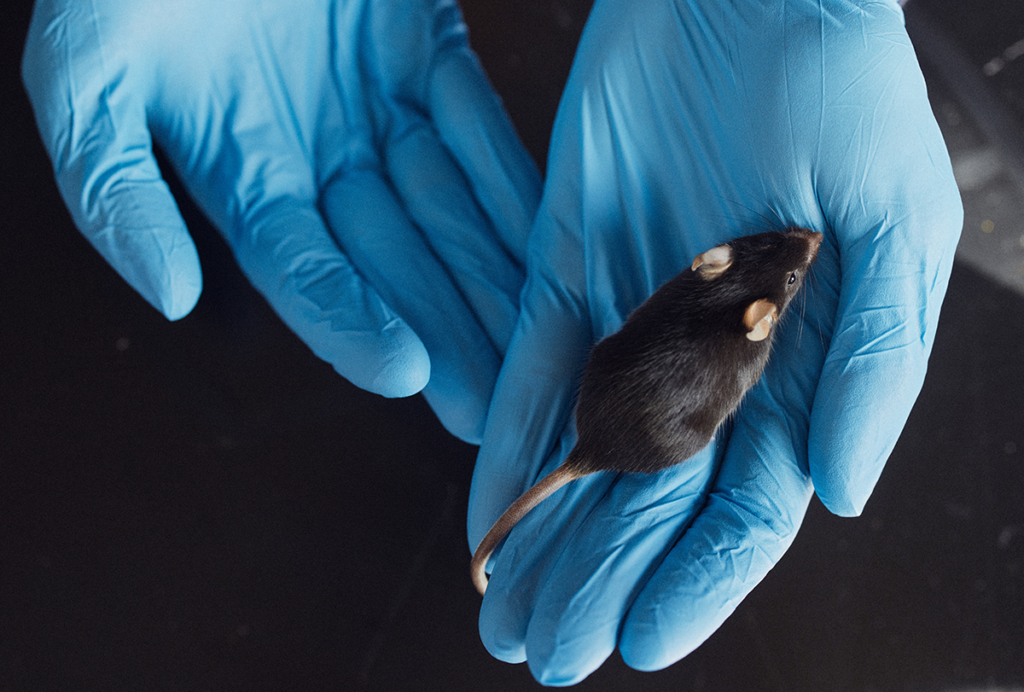
Molecular changes after MECP2 loss may drive Rett syndrome traits
Knocking out the gene in adult mice triggered up- and down-regulated expression of myriad genes weeks before there were changes in neuronal function.
Targeting NMDA receptor subunit reverses fragile X traits in mice
The subunit acts as a “volume control” on signaling that shapes the density of dendritic spines, the new work suggests.
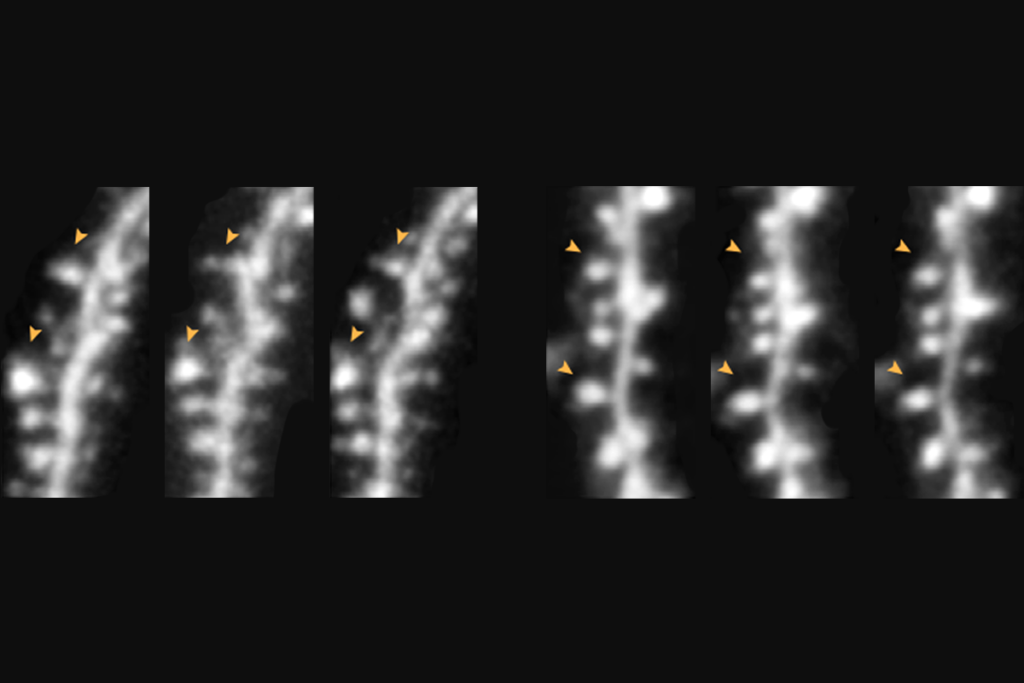
Targeting NMDA receptor subunit reverses fragile X traits in mice
The subunit acts as a “volume control” on signaling that shapes the density of dendritic spines, the new work suggests.
Cracking the code of the extracellular matrix
Despite evidence for a role in plasticity and other crucial functions, many neuroscientists still view these proteins as “brain goop.” The field needs technical advances and a shift in scientific thinking to move beyond this outdated perspective.
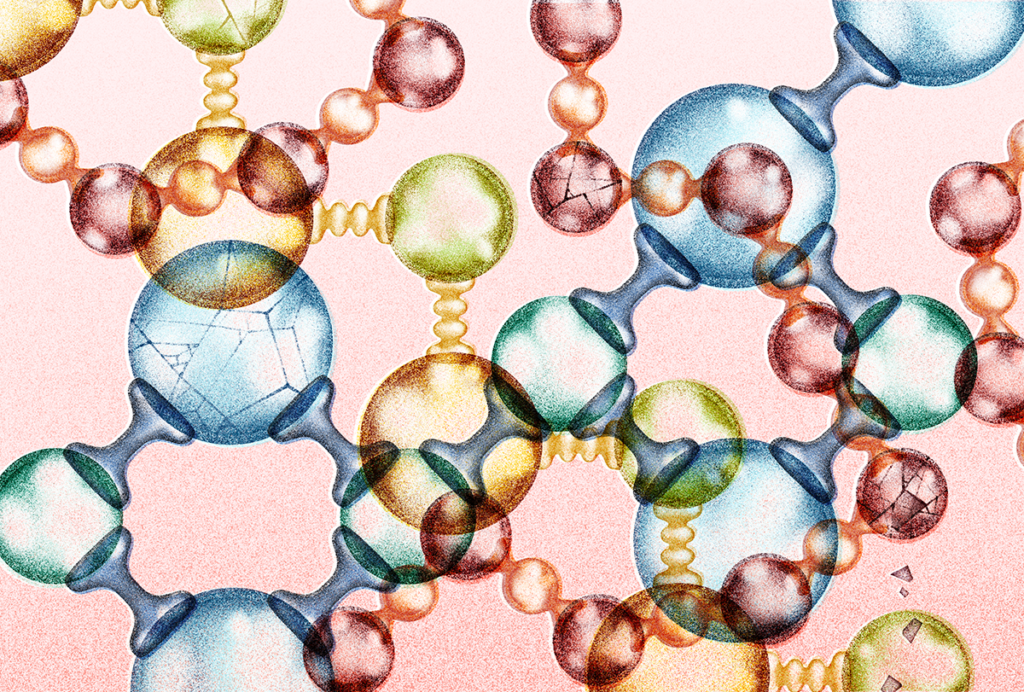
Cracking the code of the extracellular matrix
Despite evidence for a role in plasticity and other crucial functions, many neuroscientists still view these proteins as “brain goop.” The field needs technical advances and a shift in scientific thinking to move beyond this outdated perspective.
Synaptic changes shape winning mice into bullies
When a mouse repeatedly defeats its opponents, brain circuits that underlie aggressive behaviors develop more stable connections, helping to ensure continual triumph, a new study shows.

Synaptic changes shape winning mice into bullies
When a mouse repeatedly defeats its opponents, brain circuits that underlie aggressive behaviors develop more stable connections, helping to ensure continual triumph, a new study shows.
What makes memories last—dynamic ensembles or static synapses?
Teasing out how different subfields conceptualize central terms might help move this long-standing debate forward. I asked eight scientists to weigh in.

What makes memories last—dynamic ensembles or static synapses?
Teasing out how different subfields conceptualize central terms might help move this long-standing debate forward. I asked eight scientists to weigh in.
This paper changed my life: ‘Response of hippocampal synapses to natural stimulation patterns,’ by Dobrunz and Stevens
The work demonstrated how to effectively combine controlled in-vitro experiments and the messiness of natural brain patterns.

This paper changed my life: ‘Response of hippocampal synapses to natural stimulation patterns,’ by Dobrunz and Stevens
The work demonstrated how to effectively combine controlled in-vitro experiments and the messiness of natural brain patterns.
‘Star’ neuroscientist faked data in paper and grant applications, U.S. government finds
The faked data, which was part of research on the genetic mechanisms of synaptic plasticity, was used to obtain more than $1.4 million in federal funding.

‘Star’ neuroscientist faked data in paper and grant applications, U.S. government finds
The faked data, which was part of research on the genetic mechanisms of synaptic plasticity, was used to obtain more than $1.4 million in federal funding.
Neurons making memories shush their neighbors
When neurons strengthen their synapses, they “infect” surrounding cells with a virus-like protein to weaken those cells’ excitatory connections, according to a new preprint.
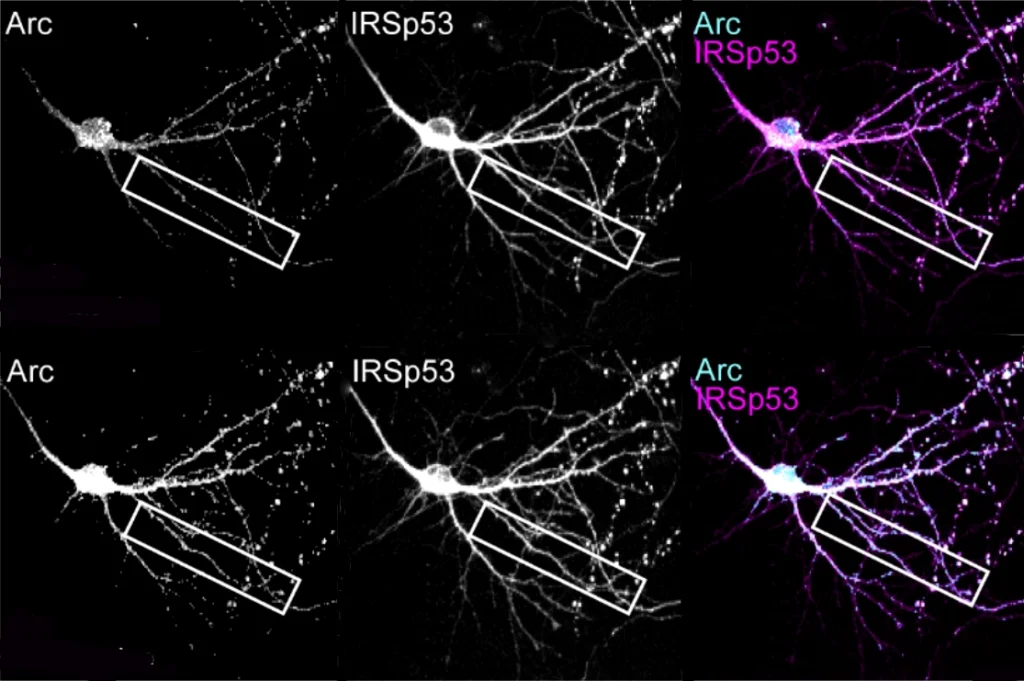
Neurons making memories shush their neighbors
When neurons strengthen their synapses, they “infect” surrounding cells with a virus-like protein to weaken those cells’ excitatory connections, according to a new preprint.
Synaptic protein’s shape-shifting skills propel plasticity
SYNGAP supports learning without tapping its eponymous “GAP” enzymatic activity, according to a new study.
Synaptic protein’s shape-shifting skills propel plasticity
SYNGAP supports learning without tapping its eponymous “GAP” enzymatic activity, according to a new study.
Mutation in top autism-linked gene may alter eye reflex
The discovery could help clinicians diagnose children who carry mutations in the gene, called SCN2A, and gauge their responses to potential therapies.
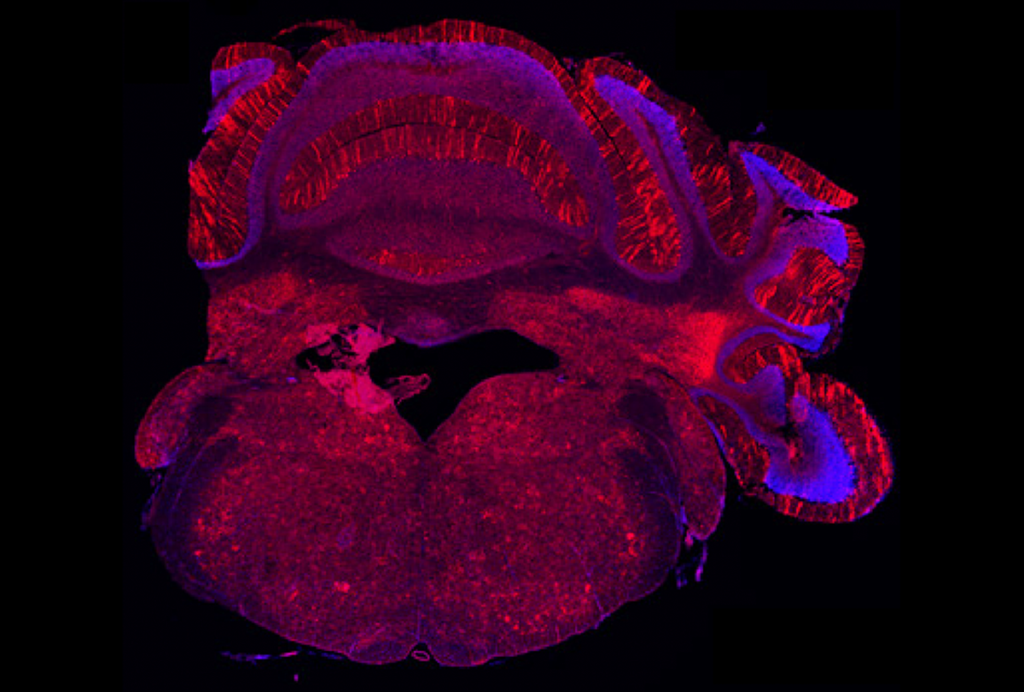
Mutation in top autism-linked gene may alter eye reflex
The discovery could help clinicians diagnose children who carry mutations in the gene, called SCN2A, and gauge their responses to potential therapies.
Explore more from The Transmitter
Video catches microglia in the act of synaptic pruning
Live cell imaging reveals the clearest picture yet of this elusive process. Whether it’s something these cells do regularly remains up for debate.
Video catches microglia in the act of synaptic pruning
Live cell imaging reveals the clearest picture yet of this elusive process. Whether it’s something these cells do regularly remains up for debate.
Gabriele Scheler reflects on the interplay between language, thought and AI
She discusses how verbal thought shapes cognition, why inner speech is foundational to human intelligence and what current artificial-intelligence models get wrong about language.
Gabriele Scheler reflects on the interplay between language, thought and AI
She discusses how verbal thought shapes cognition, why inner speech is foundational to human intelligence and what current artificial-intelligence models get wrong about language.
Accepting “the bitter lesson” and embracing the brain’s complexity
To gain insight into complex neural data, we must move toward a data-driven regime, training large models on vast amounts of information. We asked nine experts on computational neuroscience and neural data analysis to weigh in.
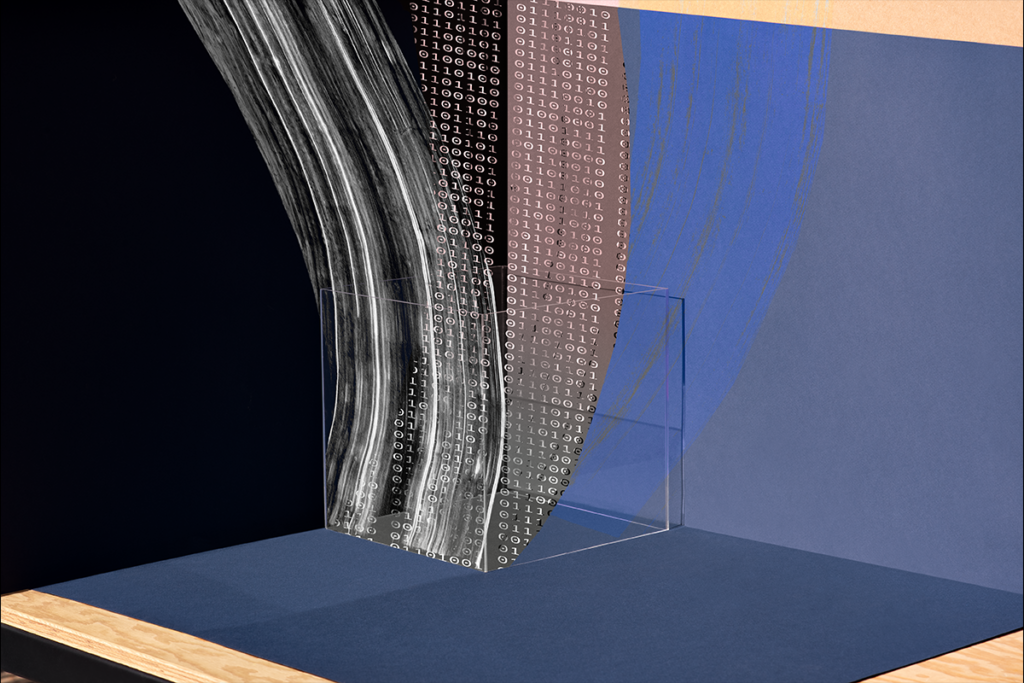
Accepting “the bitter lesson” and embracing the brain’s complexity
To gain insight into complex neural data, we must move toward a data-driven regime, training large models on vast amounts of information. We asked nine experts on computational neuroscience and neural data analysis to weigh in.